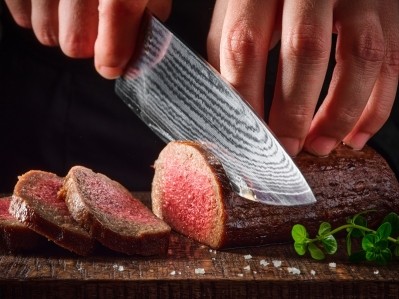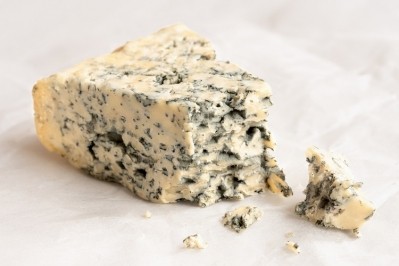WATCH: Working with fungi to ‘break the plant-based ceiling’
Plant-based meat alternatives have hit the mainstream in recent years. In many supermarket aisles across Europe, plant-based sausages and meat-free mince are now commonplace, illustrating ‘phenomenal’ work by plant-based innovators, according to Alan Iván Ramos, CEO of Libre Foods.
But the taste, texture, and nutrition of meat-free offerings have hit a ‘plant-based ceiling’, he told us at FoodNavigator’s recent Positive Nutrition Summit in London. And where that plant-based ceiling ends, Ramos believes fungi-based ingredients can begin.
The functionality of fungi
Libre Foods is backing fungi to increase the diversity of current meat-free offerings. There is ‘so much’ opportunity within the fungi kingdom, he explained, from improving fibrosity to taste and nutritional profile.
“I’ve always been a huge fan of all the alternative protein products that have come onto the market, everything from burgers to sausages and nuggets, but we’re not going to transform our food system that way,” Ramos told this publication.
Libre Foods is laser focused on ‘diversifying’ product formats and ‘building upon what has already been achieved’ within the alternative protein market. “We’re using fungi and technology to take that further towards more complex forms of products.”
The start-up’s first product is a bacon alternative made from mushroom fruiting bodies, which the CEO sees as a ‘steppingstone’ on its way towards achieving the complex structures of chicken breast alternatives and ‘in due time’, its star product: fungi-based steak.
From a nutrition standpoint, fungi offer Libre Foods the opportunity to limit its ingredients lists. Where plant-based meat alternatives may have to increase the number of ingredients to improve texture or taste, fungi can play that role with functionality and an umami taste. Fungi can also provide a source of protein, vitamins, and fibre.
Sustainability credentials and market entry
Fungi also boasts strong sustainability credentials, explained CEO Ramos. Indeed, its ‘most impressive’ feature is its rate of growth – essentially, how quickly it the organism reproduces, we were told.
“When we compare ourselves to plant-based proteins…we see a significant improvement in the rate of growth of this raw material, which for unit economics, ends up being very beneficial.
“But also from a broader sustainability perspective, the fact that we’re able to use a far larger fraction in reduction of land use, [as well as] water and general resources is a big value proposition for us.”
While fungi grow fast, regulatory progress in Europe appears slow. Some of the mycelia strains Libre Foods is working with require Novel Foods pre-market approval to enter the European market. This presents a challenge, we were told.
Fungi’s potential is being ‘blocked’ and ‘stagnated’ by regulatory affairs, said Ramos. “That’s why we’ve had to get really creative with our strategy and take the lowest hanging fruit…fruiting bodies.” Indeed, the ‘fruiting body’ – which Ramos has described as ‘basically any mushroom seen in the supermarket’ – is a known entity and not subject to Novel Foods regulation.
The start-up’s first product, Libre Bacon, is made from this part of the fungi. The strategy enables Libre Foods to get to market and bring in revenues while it works on its mycelia platform in parallel.
Watch the video for our full interview with CEO of Libre Foods, Alan Iván Ramos, at FoodNavigator’s Positive Nutrition Summit 2023.















